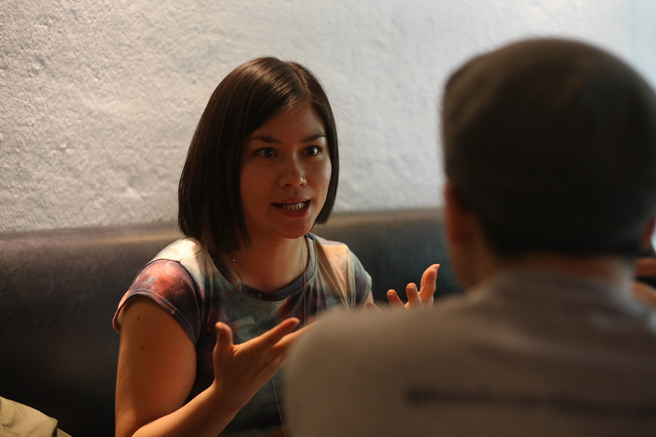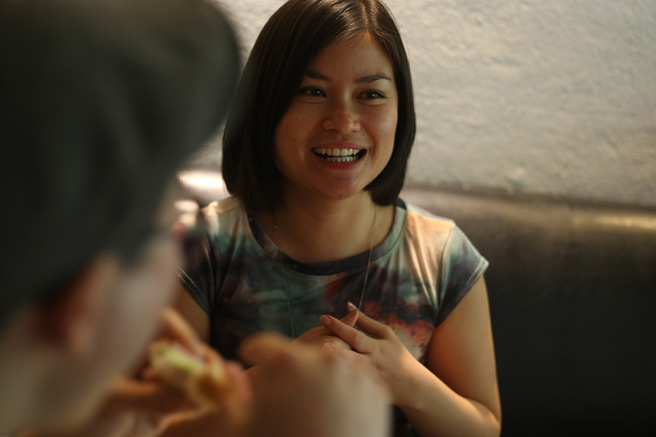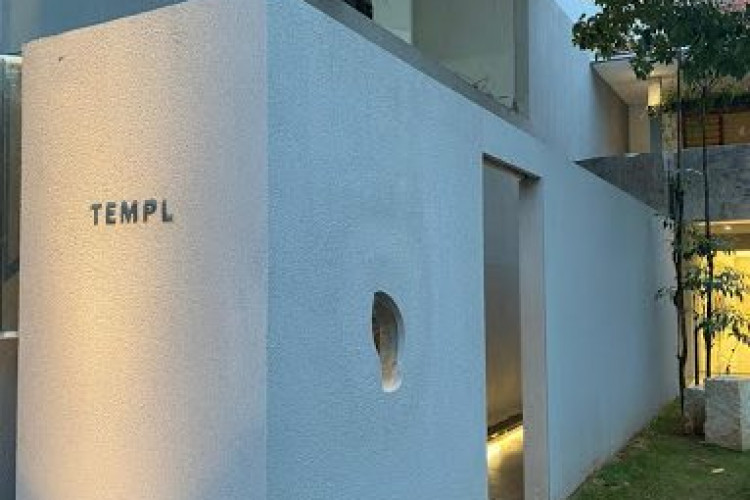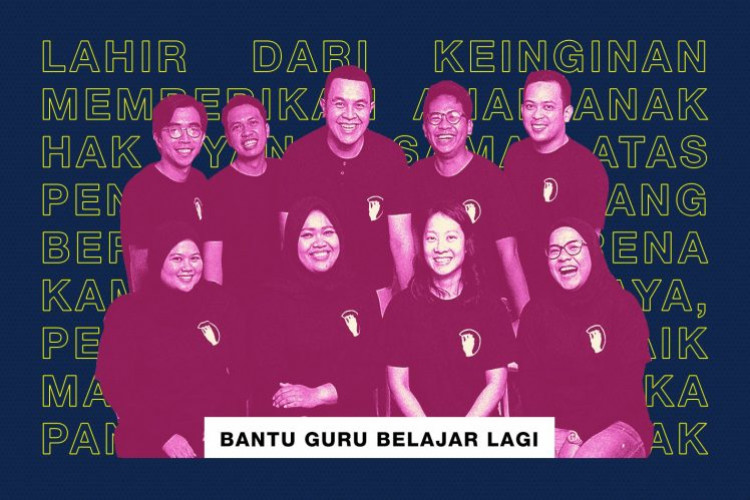





Back in 2013 a group of young Indonesians living in Berlin wanted to give young Indonesian filmmakers a chance to show what they’re capable of. They started Pidjar, a platform showcasing Indonesian and South East Asian movies, and haven’t looked back since. Whiteboard Journal sat down with one of their founding members, Stephanie Larassati, over breakfast to discuss why it’s time for Indonesian filmmakers to shine.
Interview by jan k
Photos by Refan Ramadhan
How did Pidjar start?
It started when me and my friend Audrey Juanda made a short film called “Anak dan Tebu” which was selected for the Arte Indonesia Arts Festival in Jakarta curated by Ade Darmawan and thanks to that we ended up being really into filmmaking. About the same time we got together with a few other film buffs from PPI Berlin and decided to stage a small film festival for Indonesian students in Germany. We wanted to give them a chance to showcase their work since there are a lot of film making enthusiasts who have so far been deterred because there wasn’t any proper platform. And so in 2013 Pidjar was born.
We were very surprised to see the amount of submissions and the event itself drew around 60-70 people. And we realized that there’s this enthusiasm and interest. Seeing this and due to the success of the event we decided to make Pidjar its own independent organization.
Who are the people behind Pidjar?
There’s currently six of us, each with different backgrounds. I’m an architect and then there’s Audrey, who’s a website project manager. Yusuf Pratama, who’s doing his Master in East Asian studies, Ludovicus Gees, a graphic designer, Reza Purnama Arief, a computer science student and Fiameta Dea, who studies business informatics. With the exception of Audrey we’re all based in Berlin.
Is there any other motivation behind Pidjar besides being a platform for Indonesian or east asian films, is there a specific content you like to highlight that’s reflected in your curation of films?
When we did the first Pidjar event there was a special emphasis for short films without any restrictions content-wise. But soon after we focused on young Indonesian film makers who handles or discusses certain themes.
To answer this question properly I think we should get back to the role and function of a film. I think film is a media form that has the ability to mirror the society and environment where it was created. And it’s all compressed into 2 hours that can convey all of these things visually, sonically and emotionally.
Indonesia is a developing country that is still finding its way and it’s a process that causes certain problems to arise. And that’s what makes independent Indonesian films very interesting, because it comes up with a way to show all of these problematics. Themes such as sexuality or identity searching in Jakarta. But they’re not being given enough chance to be heard. And that’s why we’re trying to give them a platform to be seen by both Indonesian and international audiences in Germany.
Is there any theme that you wish to see more in Indonesian films, especially in light of Indonesia’s current state?
It doesn’t have to be a complicated theme, nothing political or anything like that. Back in 2014 during the Berlinale we did a screening of “Selamat Pagi Malam” by Lucky Kuswandi. The film portrays Jakarta from the perspectives of three different women and it has a lot of scene that some may call over the top, but they really strike a chord for someone who’s been away from Indonesia for so long. Things like the materialism or the overbearing importance placed on marriage or even the way the society handles sexuality like it’s the biggest taboo even though in practice it’s very different entirely. It’s very atmospheric and funny but also sad at the same time. It’s these kind of films that seems unspectacular on the surface but has a lot of surprising depth.
Is this film also released in Indonesia?
It was! I read somewhere recently that attendance was low when it was first released even though they worked hard to get it screened in the local cinemas. And around one year later it was shown abroad and it did quite well and got good reviews. When I watched it I couldn’t understand why it was unsuccessful, because it is a beautiful film and it has that right mix of independent and mainstream sensibilities. I can understand why films that are too artsy or experimental aren’t everyone’s cup of tea but Hollywood already does mainstream stuff very well, so why not mix it up a little?
How do you select your films?
Basically each of us tries to suggest a film we like and we assess the theme and try to decide it whether would be a good movie to show. Other than that we try to consider smaller details, like if we’re screening in the summer, it will be a movie with a kind of summery feel.
Do you have any films that you’d like to screen but haven’t been able to for whatever reason?
I really want to screen a film called “Jalanan”, a documentary about street buskers in Jakarta by Daniel Ziv, an american living in Jakarta. Other than that “Sendiri Diana Sendiri” by Kamila Andini, “Kisah Cinta yang Asu” by Yosep Anggin Noen and “The Fox Exploits The Tiger’s Might” by Lucky Kuswandi are also high on our wish list.
What kind of difficulties do you face?
We work pro bono and we’re also busy with our own lives, so first and foremost there are organizational difficulties. But there’s six of us and we’re getting the hang of finding elegant solutions to our problems. We’re also lucky to live in Berlin where there’s a big Indonesian community where everyone helps each other.
Film-wise, it could be quite a challenge to get the permission to show the films. There are directors who are very easy to correspondent with, while there are also those you don’t hear back from.
What is Pidjar’s plans for the future?
We’ll be continuing our annual event during the Berlinale each year. Since last year we’ve also had the pleasure of being able to invite and showcase young Indonesian directors attending the Berlinale workshop and competition. Beside that we also organize smaller screenings every now and then. We had three smaller events last year in galleries or cafes with mainly short films from directors such as Ucu Agustin and Yosep Anggi Noen.
Any last words?
I wish the Indonesian films, especially the independent ones, would get more support from the government. Now I know we tend to get exasperated when the talk turns into dealing with the government, because of the bureaucracy or the perceived ignorance and incompetence. But at the same time I think that now is them time for them to step up and show interest in this matter because there are a lot of young active filmmakers, the scene is throbbing. Without the missing link, the government’s support, they won’t achieve their potential.
Pidjar’s next event is on the 15th of August at the Filmrauschpalast in Berlin. They will be screening ‘The Mirror Never Lies’ by Kamila Andini. For more on Pidjar check their Facebook page.
Refan Ramadhan is a photographer who recently documented Bandung’s metal mainstay Burger Kill on tour. For more of his work follow his Instagram feed.











